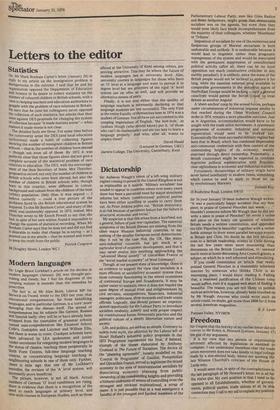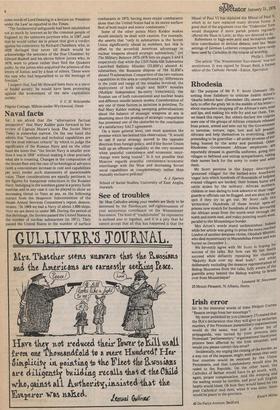Freedom
Sir: I regret that the brevity of my earlier letter did not convey to Mr Robin A. Howard (Letters, January 17) the gist of my argument.
It is my view that any person or organisation adversely affected by legislation is entitled to complain: I can understand therefore that the trade union movement does not take kindly to legal rulings made by a non-elected body, hence my quoting the late Winston Churchill's criticism of the House of Lords veto.
it would seem that, in spite of the contradictions in the last paragraph of Mr Howard's letter, he is all for the status quo. My own position is that I tend to be opposed to all Establishments, whether of governments, political parties, trade unions et al. In this connection may I call to my aid to explain my position
some words of Lord Denning in a lecture on 'Freedom under the Law' as reported in the Times.
"The fundamental safeguards had been established not so much by lawyers as by the common people of England: by the unknown juryman who, in 1367, said that he would rather die in prison that give a verdict against his conscience; by Richard Chambers, who, in 1629, declar,ed that never till death would he acknowledge the sentence of the Star Chamber; by Edward Bushell and his eleven fellow jurors who, in 1670, went to prison rather than find the Quakers guilty; by the jurors who acquitted the printers of the letters of Junius; and by a host of others. These were the men who had bequeathed to us the heritage of freedom."
I suspect that, had Mr Howard been born in a slave or feudal society, he would have been protesting against the evolvement of the new capitalistic society.
F. C. H. Witcombe Pilgrim Cottage, Milton-under-Wychwood, Oxon



























 Previous page
Previous page